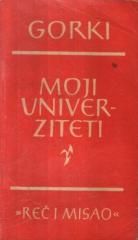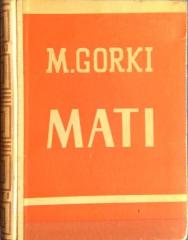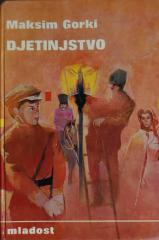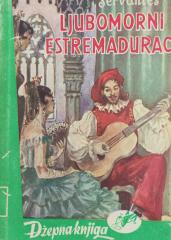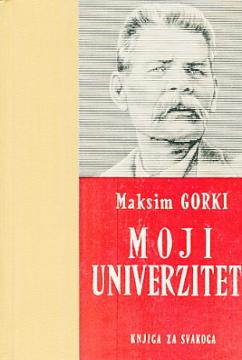
Moji univerziteti
Autobiographical trilogy - Childhood, In the world, My universities. Judging by some of his letters and works, Gorki conceived this trilogy as early as 1893 and wrote it from 1913 to 1923.
My Universities is the third part of Maxim Gorky's autobiographical trilogy, published in 1923 (Serbian edition 1962). The book follows the life of young Alexei Peshkov (Gorky) in the period when he leaves his hometown of Nizhny Novgorod and goes to Kazan with the hope of entering the university. However, faced with financial difficulties and the impossibility of formal education, Aleksey realizes that his real "universities" are life lessons acquired through work, meetings with different people and independent study.
In Kazan, Alexey works various physical jobs, from porter to baker's assistant, while living in poor conditions, surrounded by marginals, workers and intellectuals. The book describes his acquaintance with revolutionary ideas, literature and philosophy, which shape his worldview. Key characters, such as workers, beggars and intellectuals, teach him about social injustices, but also about the strength of the human spirit. A particularly important role is played by the bookstore where Aleksey discovers books, which become his main source of knowledge.
Gorky explores themes of poverty, the search for meaning, and the conflict between individual aspirations and the harsh reality of tsarist Russia. The book is imbued with his struggle against despair, including a moment when he contemplates suicide, but also with his optimism and faith in human resilience. The title "My universities" symbolically emphasizes that real education comes from life experience, not only from formal institutions.
The book is written in a realistic style, with rich descriptions and deep psychological insights, which makes it a powerful account of personal maturation and social conditions of that era.
One copy is available
- Traces of patina
